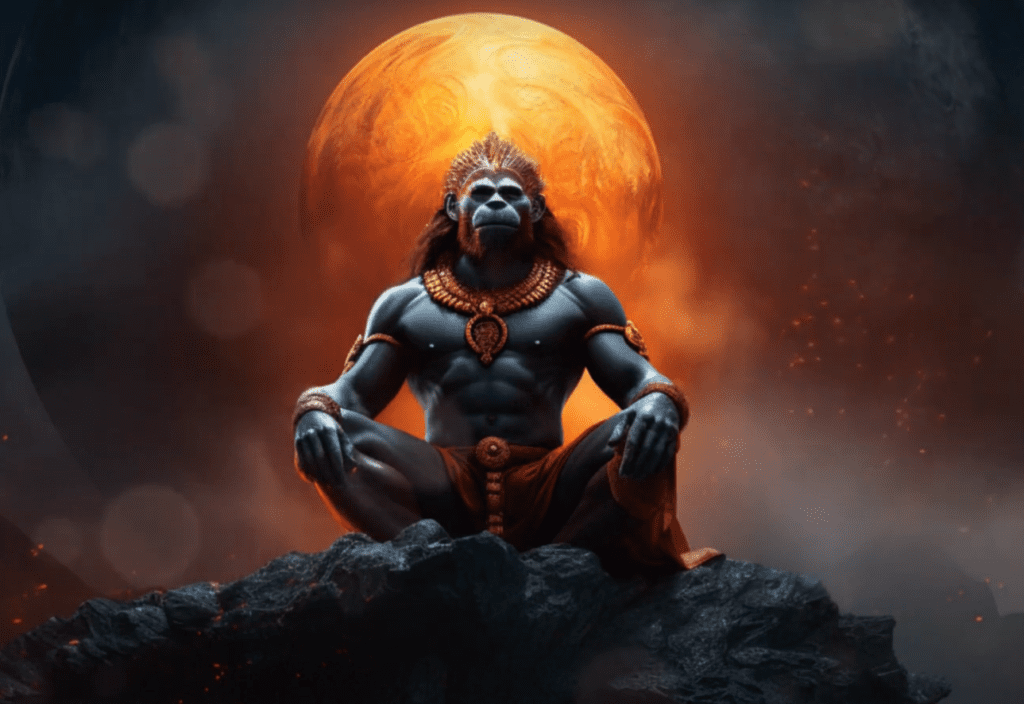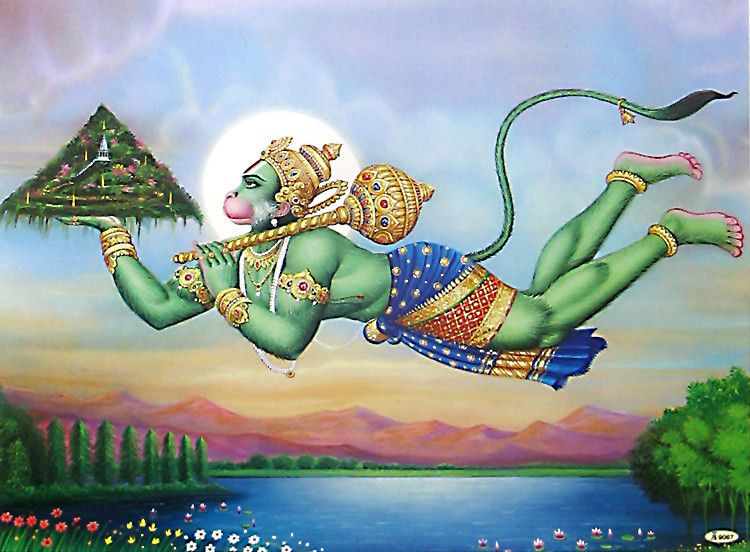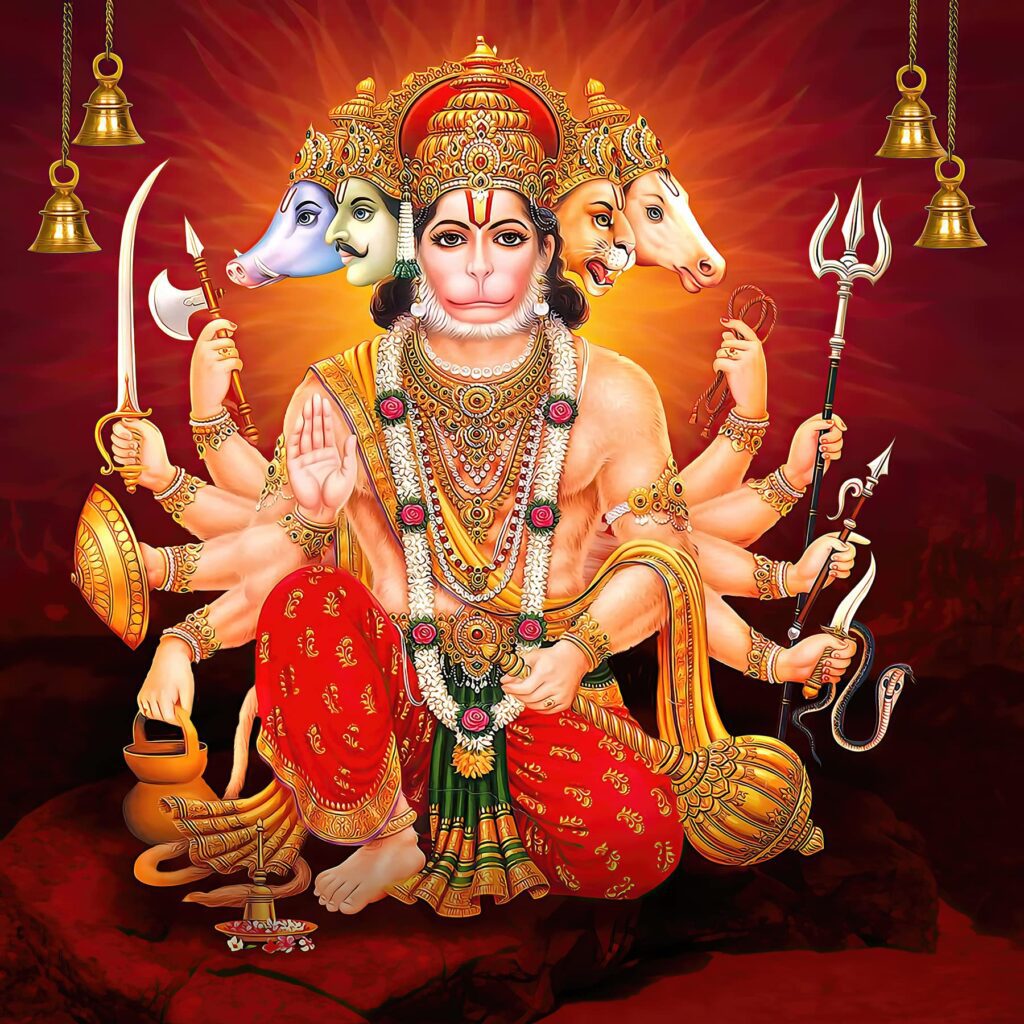I’ve often been asked questions about Lord Hanuman. Not as a religious figure, but as a symbol of something deeper, something spiritual. So, I thought, why not gather these questions and try to answer them in a way that goes beyond rituals and icons?
Let’s dive into the spiritual lessons that Lord Hanuman’s life and qualities can teach us, regardless of our beliefs.
Who is Lord Hanuman?

Lord Hanuman is often depicted as a divine monkey and a devoted servant of Lord Rama in Indian mythology. But if we strip away the mythology, Hanuman represents a set of virtues and attitudes that we can all learn from—unwavering devotion, humility, and an unparalleled strength of character.
Think about it: Who doesn’t want a friend or ally like Hanuman? Someone who shows up for you when you need them the most. In a way, we all have a “Hanuman” within us—the ability to rise to the occasion, to serve selflessly, and to be courageous in the face of adversity.
Why is Hanuman a Symbol of Strength?
One of the most famous stories about Hanuman is how he forgot his own strength until someone reminded him of it. Isn’t that us most of the time? We get caught up in self-doubt or forget what we’re capable of until someone or something pushes us.
Hanuman’s strength isn’t just about lifting mountains; it’s also emotional and spiritual. He teaches us that real strength comes from a pure heart and a focused mind. When you’re clear about your purpose, there’s very little you can’t accomplish. As Hanuman says in the Ramayana, “With the name of Rama in my heart, no task is impossible.”
What Does Hanuman’s Devotion Teach Us?
Hanuman’s devotion to Rama is legendary. But this isn’t about worshipping someone else; it’s about finding something bigger than yourself to devote your energy to. For some, this might be a cause, a loved one, or even your personal growth. Devotion fuels our lives with meaning and gives us a sense of direction.
I remember a friend who was deeply passionate about environmental conservation. Whenever she spoke about it, her eyes lit up, and she’d work tirelessly without expecting recognition. That’s the kind of devotion Hanuman embodies—giving your best, selflessly, to something that matters deeply to you.
Why is Hanuman Known for His Humility?
Humility is often misunderstood. It’s not about thinking less of yourself but thinking of yourself less. Hanuman’s incredible feats never made him arrogant. Instead, he attributed all his successes to Lord Rama.
In modern life, this humility can be a grounding force. Imagine working on a big project at work. While you’re proud of your contribution, you also recognize the collective effort behind it. When we acknowledge others and stay rooted, we’re practicing humility—a trait that keeps us connected to the people and the world around us.
What Does the Symbol of the Monkey Represent?
Monkeys are often seen as restless and curious creatures. Hanuman’s monkey form symbolizes the human mind—always jumping from one thought to another. Through his discipline and devotion, Hanuman shows us that it’s possible to channel this restless energy into something productive and meaningful.
The next time your mind feels like a wild monkey, pause and take a deep breath. Ask yourself, “What is my focus right now?” Even a moment of mindfulness can help you redirect your energy toward what truly matters.
Why is Hanuman Immortal?

Hanuman’s immortality is not just a mythological boon; it’s a metaphor. The qualities he represents—courage, devotion, humility, and strength—are timeless. These traits can make anyone immortal in the sense that their impact lives on long after they’re gone.
Think of someone you admire. Maybe it’s a teacher who inspired you or a friend who helped you through a tough time. Their essence lives on in you. Similarly, when we embody virtues like Hanuman’s, we leave a legacy that lasts.
What is “Legend of Hanuman” Animated TV Series? Where Can I Watch It?
The “Legend of Hanuman” is an animated TV series that beautifully portrays the life and adventures of Lord Hanuman, focusing on his transformation from a divine being unaware of his powers to a hero who discovers his true potential. The series is available on Disney+ Hotstar and is a visual treat for those who wish to explore Hanuman’s stories in a modern format.
Who Was Hanuman’s Wife?
According to some texts, Hanuman’s wife is Suvarchala, who is believed to embody the Sun’s brilliance and radiance. However, many narratives present Hanuman as a celibate, focusing entirely on his devotion and service.
Who Were Hanuman’s Kids?
Hanuman is often considered childless due to his vow of celibacy. However, some folktales mention a son named Makardhwaja, who was born from a drop of Hanuman’s sweat that fell into the ocean.
Who Were Hanuman’s Parents?
Hanuman’s parents were Anjana, an apsara cursed to live on Earth, and Kesari, a vanara chief. He is also considered the spiritual son of Vayu, the wind god, who blessed Anjana to conceive Hanuman.
What Were Hanuman’s Different Names?
Hanuman is known by many names, each reflecting a different aspect of his personality. Some of these include:
- Anjaneya (Son of Anjana)
- Maruti (Son of Vayu, the wind god)
- Bajrangbali (One with a strong, thunderbolt-like body)
- Pawanputra (Son of the wind)
- Mahaveer (The great hero)
How Was Hanuman Named as Hanuman?
The name “Hanuman” is derived from the Sanskrit words “Hanu” (jaw) and “Man” (prominent or disfigured). According to mythology, as a child, Hanuman tried to eat the Sun, mistaking it for a fruit, and was struck on the jaw by Indra’s thunderbolt. This incident gave him the name Hanuman.
Who Was More Powerful Than Hanuman in Ramayana?
While Hanuman was immensely powerful, Lord Rama is considered more powerful due to his divine nature as an incarnation of Vishnu. However, Hanuman’s strength and devotion were unparalleled among the vanaras.
When Is Hanuman Jayanti?
Hanuman Jayanti, the day celebrating Hanuman’s birth, is observed on different dates in different regions of India. Typically, it falls in the Chaitra month (March-April) in most parts of India, but in some regions like Tamil Nadu, it is celebrated in December.
How Can We Bring Hanuman’s Qualities into Our Daily Lives?

- Service with Joy: Hanuman never hesitated to serve. Whether it’s helping a colleague or volunteering in your community, acts of service uplift not just others but also your own spirit.
- Face Challenges Bravely: Life will throw challenges your way. Remember Hanuman’s leap across the ocean? The first step is often the hardest, but courage grows with action.
- Stay Humble: Celebrate your achievements but remember to share the credit. Gratitude and humility make success even sweeter.
- Mindfulness: Tame your “monkey mind” with moments of stillness. Meditation, journaling, or even a walk in nature can work wonders.
- Devote Yourself: Find something that ignites your passion and give it your all. Whether it’s your family, career, or a hobby, devotion adds depth to your life.
A Personal Note
Every time I think of Hanuman, I’m reminded of a simple yet profound line: “You are stronger than you think, braver than you believe, and more capable than you imagine.” This isn’t just a comforting thought; it’s a call to action. It’s a reminder to tap into the Hanuman within you and rise to life’s occasions with grace and courage.
Spirituality isn’t about looking outward; it’s about turning inward. And in the spirit of Hanuman, may we all discover our boundless potential and live with purpose, humility, and love.
Have a question about Lord Hanuman or a related idea? Share it in the comments. Let’s explore this journey of self-discovery together.

